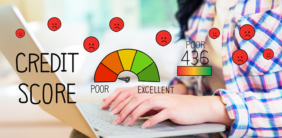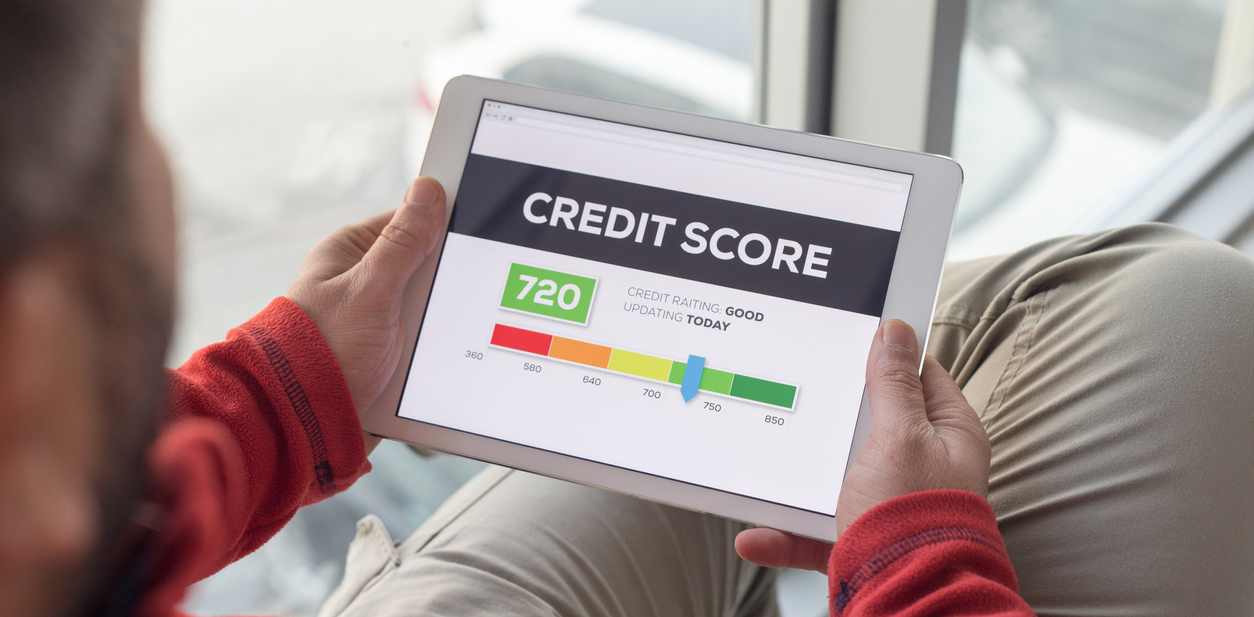You have questions about secured loans, we have answers.
Applying for a loan can feel like an overwhelming process. Before you can even apply, you have to be wary of personal factors like your credit score, debt-to-income ratio, and credit history.
Then, once you start scouting the loan market, you have to consider and compare lenders, interest rates, and terms.
It’s a lot to navigate.
To simplify this process, we’ll walk through the ins and outs of secured loans, including what they are, the different types, how they compare to unsecured loans, and more.
What Is a Secured Loan?
A secured loan is any loan that’s backed by assets you own or are purchasing with the loan (like a house or car). Lenders can use these assets, also known as collateral, to cover your loan amount if you stop making payments.
The lender will place a lien on your assets to claim them as collateral. That means they have the legal right to take possession of said asset until you fulfill your obligation to the lender (i.e. repay your debt). Once the loan is repaid, the lender will remove this lien, and you’ll be in the clear.
For example, if you want a $15,000 loan to finance the purchase of a car, you’d likely have to provide the car as collateral. Once you pay off the loan and related interest, the lien on your car will be lifted — and the car will be yours, no strings attached.
Even while the loan is outstanding, it’s still your car (and you can still drive it). But if you stop making payments, it won’t be — your lender can repossess it.
Secured loan: a type of loan that is backed by collateral, an asset like a house or car. Auto loans and mortgages are types of secured loans.
Lien: a claim or legal right to an asset (e.g. house, car) used to secure debt. The lien holder (e.g. lender) has the right to seize the asset if you default on the loan.
Default: when a borrower fails to pay back the loan to the financial institution as agreed. If the loan goes into default, the lender can repossess the car and sell it.
Secured vs. unsecured loans
As you can guess, collateral is the primary differentiator between secured loans and unsecured loans. In other words, unsecured loans don’t require borrowers to secure the loan with collateral.
From a lender’s perspective, collateral makes lenders much more comfortable issuing loans to borrowers. Why? Two primary reasons:
- Borrowers don’t want lenders to repossess their assets, so they’re more incentivized to repay their loans.
- If borrowers stop making payments, lenders can take possession of the assets and sell them to recover their loans.
In short, lenders prefer less risk — so they prefer secured loans. With collateral, your loan isn’t as risky.
What Can I Use as Collateral?
“Assets” and “collateral” are pretty general terms. While these terms can be used to describe practically anything of quantifiable value, there are several common assets that are used as collateral.
- Vehicles: Vehicles are commonly used as collateral. That applies to cars, SUVs, trucks, motorcycles, ATVs, boats, etc.
- Real estate: Another common asset used as collateral, real estate includes houses, condos, commercial properties, etc.
- Bank accounts and investments: Any accounts that hold your money — such as checking accounts, savings accounts, and brokerage accounts. Lenders like when their collateral consists of cash and cash equivalents (like certificates of deposits and money market accounts). Cash is much less likely to lose its value compared to a house or car.
- Other valuables: While this is a general category, “other valuables” can apply to items that have established marketplaces — like jewelry, collectibles, etc.
The assets you use as collateral also depend on the type of secured loan.
Types of Secured Loans
Debt comes in all shapes and sizes — secured loans are no exception. There are several types of secured loans to be aware of.
Auto Loans
Auto loans, including refinance loans, are common secured loans. If you want to finance the purchase of a car, you’ll likely have to include the vehicle as collateral.
Mortgage Loans
If you apply for a mortgage, expect the property to be included as collateral. Since mortgage loans are typically quite large, you’ll be hard-pressed to find a lender (at least a reputable one) that’s willing to issue you a mortgage without a lien on the house.
Secured Credit Cards
Secured credit cards are another popular secured loan. If you have bad credit or limited credit history, secured credit cards can be an effective tool for increasing your credit score.
In most cases, a secured credit card is secured by a funded bank account. Generally, your account balance will have to be equal to the total line of credit. For example, you might have a $500 line of credit under a secured credit card, but you would also have to fund a bank account with $500.
If you fail to make your credit card payments, the lender can draw from your account to cover the amount owed.
Title Loans
First and foremost, beware of title loans. Title loans are short-term, high-interest loans that are secured by your car’s title. These loans are typically small (between $100 and $5,500 on average), but they have enormous interest rates.
Don’t just take it from us, the Federal Trade Commission (FTC) also warns against these risky loans. If you’re not careful, you could lose your car.
Personal Loans
Personal loans are general in scope — they can be used for less conventional purchases. The catch is that secured personal loans generally require cash (or equivalents like CDs) as collateral.
Secured personal loans can be used to consolidate debt or improve your credit score by demonstrating your ability to make consistent, on-time payments.
What Are the Benefits of a Secured Loan?
Providing your car or hard-earned money as collateral isn’t a comfortable thought. But, compared to unsecured loans, secured loans have several benefits that can justify putting a lien on your assets.
- You can get lower interest rates. In general, secured loans have lower interest rates compared to unsecured loans. From a lender’s perspective, it’s a matter of risk versus reward. Collateral reduces the lender’s risk, so they’re usually willing to offer lower rates.
- You can offset poor credit. Collateral can rectify less-than-stellar credit or income. In other words, it’s easier to secure financing since the lender has an alternative source of repayment (i.e. selling your asset).
- You can build your credit. In addition to being easier to obtain with poor or limited credit history, secured loans also help build good credit — so long as you make on-time payments and pay off the loan.
As you can see, secured loans can have several advantages, but that’s assuming you make all of your payments and don’t default on the loan.
What Happens If I Stop Making Payments?
Sometimes, life comes at you fast. Costly medical bills, flooded basements with structural damage, lay-offs — we never expect these things to happen to us. But, then they do.
And when they do, it can become harder to make debt payments.
By reading about different types of loans, you’re demonstrating that you’re willing to be an informed borrower, which is great! But, even if you don’t anticipate ever having trouble making payments, it’s still worth knowing the repercussions of missing loan payments and defaulting on your loan.
If you stop making loan payments, you’ll default on your loan. As a result, your lender can repossess your collateral and attempt to sell it to recover their losses. To make matters worse, if the proceeds of the collateral’s sale don’t cover the balance you owe — for example, your car loan is upside down — you’re not off the hook: The lender will still enforce your obligation to repay the remainder.
On top of that, the repossession of your collateral will be included on your credit report — for the next seven years. This can tank your credit score and your chances of getting another loan.
So, if your finances start getting a little shaky and you’re worried about making payments, what should you do?
- Communicate with your lender
- Prioritize your debt payments
Lenders do not want to repossess your car or whatever asset you provided as collateral. In most cases, lenders are financial institutions like banks and credit unions. They aren’t car dealerships — they’re not in the business of selling cars.
They’re incentivized to help you because they want you to repay your loan. They’d rather not have to undergo the lengthy process of selling a vehicle to try to recoup their loan.
If you stop making loan payments, you’ll default on your loan. As a result, your lender can repossess your collateral and attempt to sell it to recover their losses.
That’s why you need to communicate with your lender if you expect some financial turbulence in the near-term that could impact your ability to repay your loan. They’re far more likely to work with you if you communicate your troubles before they cause you to miss a payment — rather than after.
This isn’t one of those “ask forgiveness, not permission” situations.
Repaying your debt should already be a financial priority, but, if you find yourself light on cash, you should consider tightening your belt, so to speak. Deprioritize discretionary spending (like streaming subscriptions and expensive meals) and reallocate that money to your debt payments.
Otherwise, you risk damaging your credit score and chances of securing loans in the future.
One Final Thought
Car loans, refinance loans, and mortgage loans are usually secured loans. If you ever plan to buy a car or house, you’ll likely encounter the decision of whether to apply for a secured loan.
Before you apply, formulate a strategy to ensure you can afford to make loan payments on-time, every time. That includes a backup plan in the event you start to face financial struggles — such as losing a job or unexpected costs.
Being prepared lessens these blows and increases your chances of successfully repaying your loan.
;)












